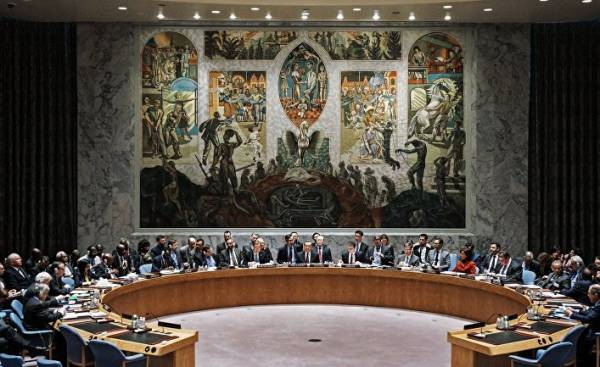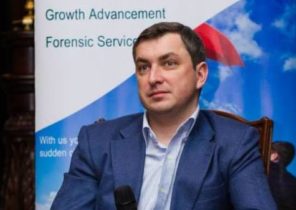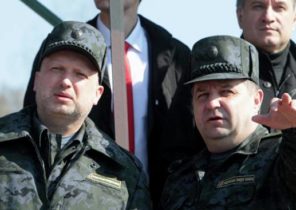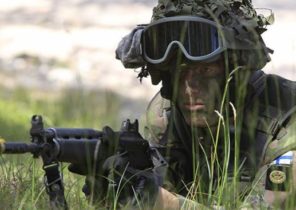
MUNICH — Ever since the end of the cold war divide between Russia and the West does not look so wide as now. However, despite the sharp differences, there are areas of common interests, and vital. As in the darkest days of the cold war, we Americans, Europeans and Russians should begin to work together to avoid disaster, including preventing terrorist attacks and reducing the risk of military or even nuclear conflict in Europe.
After the historic events of 1989-1991, forever changed Europe, each of us dealt with the problems of Euro-Atlantic security, working inside or outside the government. But all taken since the attempts to create a system of mutual security in the Euro-Atlantic region lacked perseverance and creativity. As a result, the Euro remains vulnerable to crises in politics, economy and security.
None of the parties proposes new initiatives, and the situation is likely to deteriorate. The attacks have shocked Moscow, Beslan, Ankara, Istanbul, Paris, nice, Munich, Brussels, London, Boston, new York, Washington and other cities, and those who are responsible for them, determined to attack again. On the territory of Ukraine in 2013 killed thousands of people and the number of victims is growing due to renewed military clashes now. Innocent people forced to flee the ravages of war in the middle East and North Africa. Meanwhile, relations between the West and Russia are dangerously tense, which increases the risk of a situation when an accident, a mistake or miscalculation can cause military escalation — or even a new war.
The first step towards advancing our common interests should be the definition and implementation of specific, practical initiatives in the short term to reduce threats, restore confidence, improve the overall situation with the Euro-Atlantic security. There are five key areas that should be covered by these initiatives.
- We need to reduce the threat of use of nuclear weapons. Today, the risk of accidental or mistaken launch of nuclear missiles unreasonably high. The starting point in minimizing this threat could be a new Declaration of the presidents of Russia and USA, which again confirms that a nuclear war cannot be won and start it. She would remind the joint statement of former U.S. President Ronald Reagan and former Soviet leader Mikhail Gorbachev, which was well received in both countries and would mark a new attempt to improve relations.
- We need to reduce the risks associated with maintaining nuclear forces in a state of full combat readiness when they are ready to launch and capable of hitting targets within a few minutes. The United States and Russia should commit to begin later dialogue on the issue of withdrawal from the state of full combat readiness to a significant percentage of strategic nuclear forces. Along with the Declaration suggested above, this step will set the strategic direction to reduce the nuclear threat.
- We need to reduce the threat of acquiring nuclear and radioactive materials in the wrong hands. Since the Islamic state is looking for new ways to export terror to Europe, North America and some other regions, it may try to obtain and detonate a device, spraying radioactive material (also known as a “dirty bomb”). Need to USA, Russia and Europe immediately led the global effort on securing the most vulnerable nuclear and radiological materials around the world. In particular, there is an urgent need for cooperation in ensuring security of radioactive sources. Many facilities that use such materials, is vulnerable today, however, the estimated date when the world will be, finally, provided safety to the year 2044.
- We need to reduce the risks of military confrontation, improving communications among military officials with the new joint Group of NATO and Russia on crisis management in the military sphere. This initiative should be accompanied by efforts to restore the bilateral dialogue between the military of the United States and Russia. The main focus should be on improving transparency and confidence of all sides.
- We need to reduce the risk of incidents in the airspace, which could lead to political or military conflict. The increase in military activity in areas where both are NATO and Russia, creates unacceptable high risks to civil aviation. Countries that are active in the Baltic sea region needs, above all, to share rules of “proper attention” that is established at the national level procedure, which must comply with military aircraft being in close proximity to the civil courts. Technical assistance to improve aviaproject would also significantly reduce the risk of collisions in the airspace.
To Europe, the US and Russia today faces a number of serious problems. But none of them should not distract attention from the important goal of forming a new political framework which would be based on shared vital interests and will help stop the spiral of antagonism in the relationship and to stabilize Euro-Atlantic security. Practical measures in the short term that we have listed here, will be a good place to start. We must start now.
Des Browne — former defence Minister of the UK, Wolfgang Ischinger, a former German Ambassador to the USA, Igor Ivanov — former Minister of foreign Affairs, Sam Nunn, a former democratic Senator, USA.







